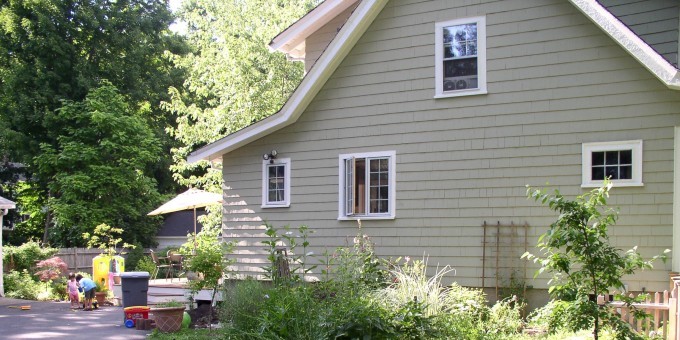The following is an interview of Boston University Professor Nathan Phillips by Green Newton interns Lal Senyurt & Wendy Zhang.
During our summer internship with Green Newton, we had the opportunity to interview Boston University Prof. Nathan Phillips, who teaches in the Department of Earth and Environment. As an ecologist, he studies how trees and forests exchange carbon, water and energy. More recently he began looking at the ecology of cities, which is how he came to study infrastructure, like natural gas systems. Professor Phillips is a resident of Auburndale. The following questions and answers are excerpts from our interview.
Why are gas leaks a serious problem?
There are pipes in Newton that were installed around one hundred years ago. The worst pipes are made of cast iron. Gas can leak from the seam connections between pipes and also the pipes can corrode. At the most immediate local scale, a gas leak is potentially a safety hazard to human health, because it is a combustible gas and explosions can happen. If leaked gas goes into soil, it can kill trees and vegetation. In Newton, we lose hundreds of trees every year due to gas leaks. Natural gas leaks
go into the air to produce harmful levels of ozone and formaldehyde, which is an air quality problem. At the global scale, it has a powerful greenhouse effect because it’s mostly made up of methane, which is many dozens of times more powerful than CO2 is as a greenhouse gas.
What amount of gas is being leaked?
It is a little less than 3% loss rate of gas. If you have 100 volume units of gas, about 3 of those units are just waste going into the air. We are actually paying for that lost gas. But even more important, because of the disproportionate greenhouse warming potential of natural gas, that 3% loss rate translates into a much larger percentage of our greenhouse gas emissions inventory. We have estimated the amount of gas that is leaking in this region to be around 10% of our entire state’s greenhouse gas emissions inventory. Methane is shorter lived than CO2, but when it is active, it is dozens of times more powerful than CO2. The mean lifetime of methane in the atmosphere is 12 years.
Would you briefly describe your 2012 study on gas leaks?
We conducted the first study of its kind in the world that detected and mapped natural gas leaks in a city. We drove through every street in Boston to determine where there were gas leaks, and we mapped 3,356 gas leaks under the streets and sidewalks using a very precise analyzer of methane.
How much progress has been made since 2012?
Progress was made in 2014 when Governor Patrick signed state legislation that will help address the gas leaks problem. It has provisions that will allow municipalities to get data on the location of gas leaks with provisions to help accelerate the repairs. It doesn’t go far enough, but currently there is legislation making its way through the state house to take further steps to address the problems.
Do you have recommendations for our city leaders to address this issue?
It would be best to coordinate the repair of the gas pipes in a more integrative manner at the same time with the water and sewer infrastructure, road surfacing, and even undergrounding electric utilities. There is a term called infrastructure ecology to address the co-located infrastructure. Committees of the Board of Aldermen have recently docketed an item that addresses the responsibility of utilities with regards to the loss of trees in Newton.
How can we recognize or report gas leaks in our neighborhood?
It is helpful to be able to recognize the smell of the invisible gas underneath the street. Because methane is odorless, the gas company adds an odorant to the natural gas, so that you can smell it. There are instances when you might not smell the gas, because it can be absorbed into the soil. If you smell gas in a home, everyone should quickly get out. And then you call the gas company, because any smell of natural gas is a potential danger. If you smell natural gas on the streets or sidewalks, call the gas company, which is National Grid, or 911 if it smells really strong.
We greatly appreciate the time Professor Phillips took to help us understand why everyone ought to know how gas leaks impact our community.



Recently on Twitter